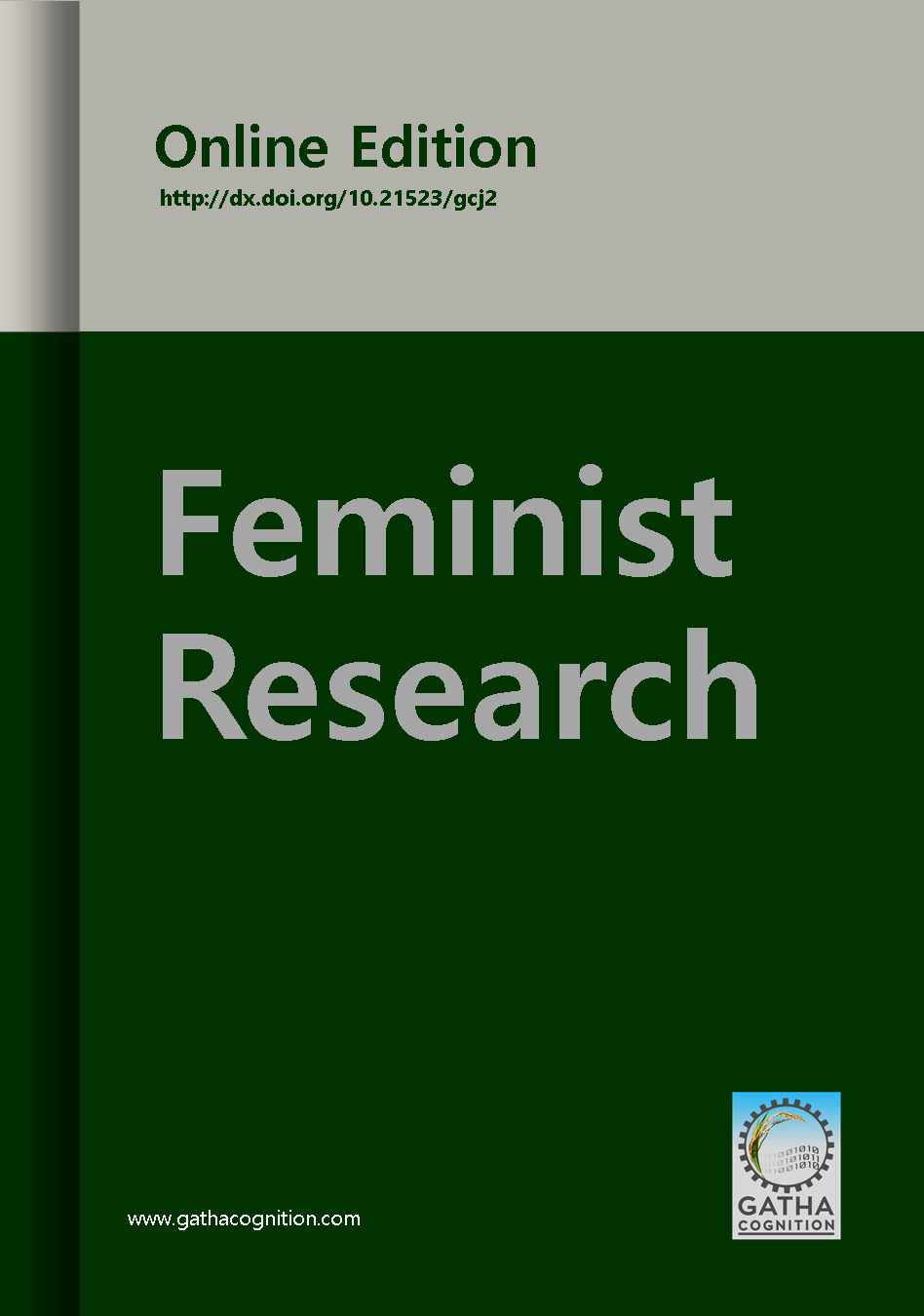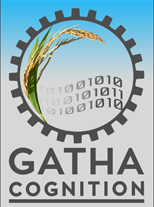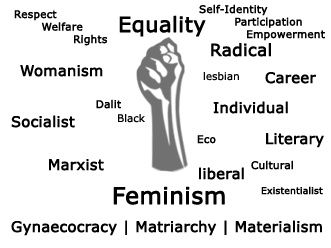Article Title :
Arab Women and Feminist Movements in Israel are Between the Hammer of Society and the Anvil of Law
5 (2021)
37-44
Arab , Discrimination , Palestinian , Rights , Women


The aim of this research is to reveal the status and image of Arab women and feminist movement in Israel, as it discusses the reality of citizens of Israel and the extent to which they have access to and enjoy their civil, economic, social and political rights. On the one hand, it also analyses women’s rights from the perspective of a society governed by customs and traditions. This is represented by the authority of the male over the female, because the Arab society is a biased society between males and females to some extent, and on the other hand it demonstrates a comparative view with the international law, agreements and treaties that provided for ensuring the protection of women’s rights.
Through this study, the researcher believes that Arab women bear the burdens of submitting themselves to nationalism and the Arab minority on the one hand and the burdens of racial discrimination against Arabs in general and against women in particular. In addition, the local authority responsible for Arab regions and cities bears part of the violations of women’s rights in employment that affect their role in the labor market. This is because it does not carry out its responsibility towards the Arab minority as required, and specifically with regard to securing suitable job opportunities for women, securing public transportation, and suitable places for women with children.

The suffering of the Palestinian Arab woman due to the nature of the society in which she lives, as Arab societies often adhere to their customs, traditions, and social and cultural heritage and legacies.
Arab women suffer within Palestinian society from the complex of patriarchal authority and male-dominating tendency.
Arab women bear the burdens of dependency and belonging to Arab nationalism.
The burdens of racial discrimination against women in particular, which affects their enjoyment of their fundamental, basic, political, social and economic rights guaranteed to them.
The local authorities in Arab villages and cities bear part of the responsibility in regard with violations to women’s rights to work.
The participation in political parties and labor market is still low compared to other countries.
Abdul-Hadi, F., 2004. Toward a Palestinian Feminist Vision: Connecting the National and the Social. Journal of Palestine Studies, 58, 1-12.
Abdo, N., 2009. Palestinian Women and the Israeli Political Economy, Mada al-Carmel, Haifa, Israel: The Arab Center for Applied Social Studies.
Abdu, N., 1994. Nationalism and Feminism: Palestinian Women and the Intifada, in Gender and National Identity: Women and Politics in Muslim Societies. Ed. by Valentine Moghadam. London: Zed Books Ltd.
Abu Baker, Kh., 2014. The image of women in magazines for women published in Arabic in Israel.
Abu Muslim, N., 2018. Women's financial and economic rights at the international and national levels. Al- Quds University, Jerusalem.
Al- Arkabi, A., 2014. The Convention on the Elimination of All Forms of Discrimination Against Women “CEDAW”: A Critical Study in Light of the Objectives of Islamic Law, Journal of Sharia Sciences, 4, 1603-1733.
AL-Fanar, 1994. Developments in the struggle against the murder of women for the sake of so-called ‘family honor’, Haifa, Israel .
Al-Shafei, K. and Awad, N., 2010. Palestinian women in political parties between attendance and absence. Ramallah, Palestine: Human Rights and Democracy Media Center.
Awwad, W., 2008. The role of Palestinian women's organizations in activating women's political participation in the period between (2000-2006). An-Najah National University, Nablus, Palestine.
Daoud, S., 2012. Palestinian Working Women in Israel: National Oppression and Social Restraints. Journal of Middle East Women’s Studies, 2, 78-101.
Daoud, S., 2017. Keeping Palestinian Women In Israel On The Economic Margins, Palestinian Policy Network Al-Shabaka Policy Brief.
Daoud, S., 2016. Women in the Islamic Movement in Israel. Frontiers: A Journal for Women Studies, 3, 18- 32.
David, S., 2005. The Political Representation of Palestinian Women in Local Government in Israel 1950-2003. The Journal of Palestine Studies, 62, 1-24.
Dawood, S., 2017. Women’s Work in the Margins: The Deterioration of the Conditions of Palestinian Citizens in Israel, The Palestinian Policy Network.
Ghunaim, A. and Bakir, A., 2019. The extent of the legitimacy of the law of Jewish nationalism in light of international law. Generation of In-depth Legal Research Journal, 32, 11-38.
Ghoneim, A., 2020. The Accession of the State of Palestine to CEDAW: A Critical Study in Light of Islamic Law. Journal of International Jurisprudence and Law, 88, 20-34.
Fuchs, H., 2016. Gender Gaps in the Labor Market: Wage and Occupational Segregation, State of the Nation Report: Society, Economy and Policy in Israel 2016. Jerusalem: Taub Center for Social Policy Studies in Israel.
Hamdan, H., and Ngula, G., 2015. Women in the Margins: Arab Women in the Labor Market in Israel. Nazareth, Israel: Worker's address.
Ibn Bari, S., 2017. Situation Report: The State of Human Rights in Israel and the OPT 2017, Tel Aviv, Israel: the Association for Civil Rights in Israel.
Judeh, W., 2017. Political empowerment of Palestinian women challenges and opportunities. Politics Journal, 41, 28-54.
Khamis, S., 2005. Double discrimination: the status of Arab women as an individual in society and as part of the national group fighting for their rights. Adalah Online Magazine, 20, 1-9.
MWAGUPW [Ministry of Women’s Affairs and the General Union of Palestinian Women], 2012. Palestinian Women's Rights Document. Ramallah, Palestine: Ministry of Women's Affairs.
Naeem, A., 2015. Palestinian Women in the 48 Regions: Representation in the Knesset and Local Authorities. Israel Issues Journal, 59, 93-103.
Paules, S., 2008. Female Employment Here and in the Arab World, Mashreqiyat Report. Tel Aviv, Israel. Association for Civil Rights.
Rahal, P., 2010. Palestinian women between the hammer of the domestic situation and the anvil of the occupation. Ramallah, Palestine: Human Rights and Democracy Media Center.
Shabaneh, L., 2006. Palestinian Unemployment in the International Context. Palestinian American Research Center.
Shtayyeh, A., 2012, The Palestinian Women's Experience in Parliament Work and Its Impact on Enhancing Political Participation 1996-2009. An-Najah National University, Nablus: Palestine.
Shwahnha, I., 2015. Women in Israel and the right to equality. Date of entry to the site: 7/3/2020.
WCMSPWCI [The Working Committee on the Status of Palestinian Women Citizens of Israel], 2021. The Status of Palestinian Women Citizens of Israel. New York, United Nations.
Zahalka, T., Tannus, N. and Wated, Z.. 2006. Identity. Nazareth, Israel: Counseling Center - the Arab sector.
Zoubi, H., 2016. Women's and Feminist Organizations in the Palestinian Interior, Israeli Issues, Journal, Axis of Feminist and Feminist Movements in Palestine, 73-84.



